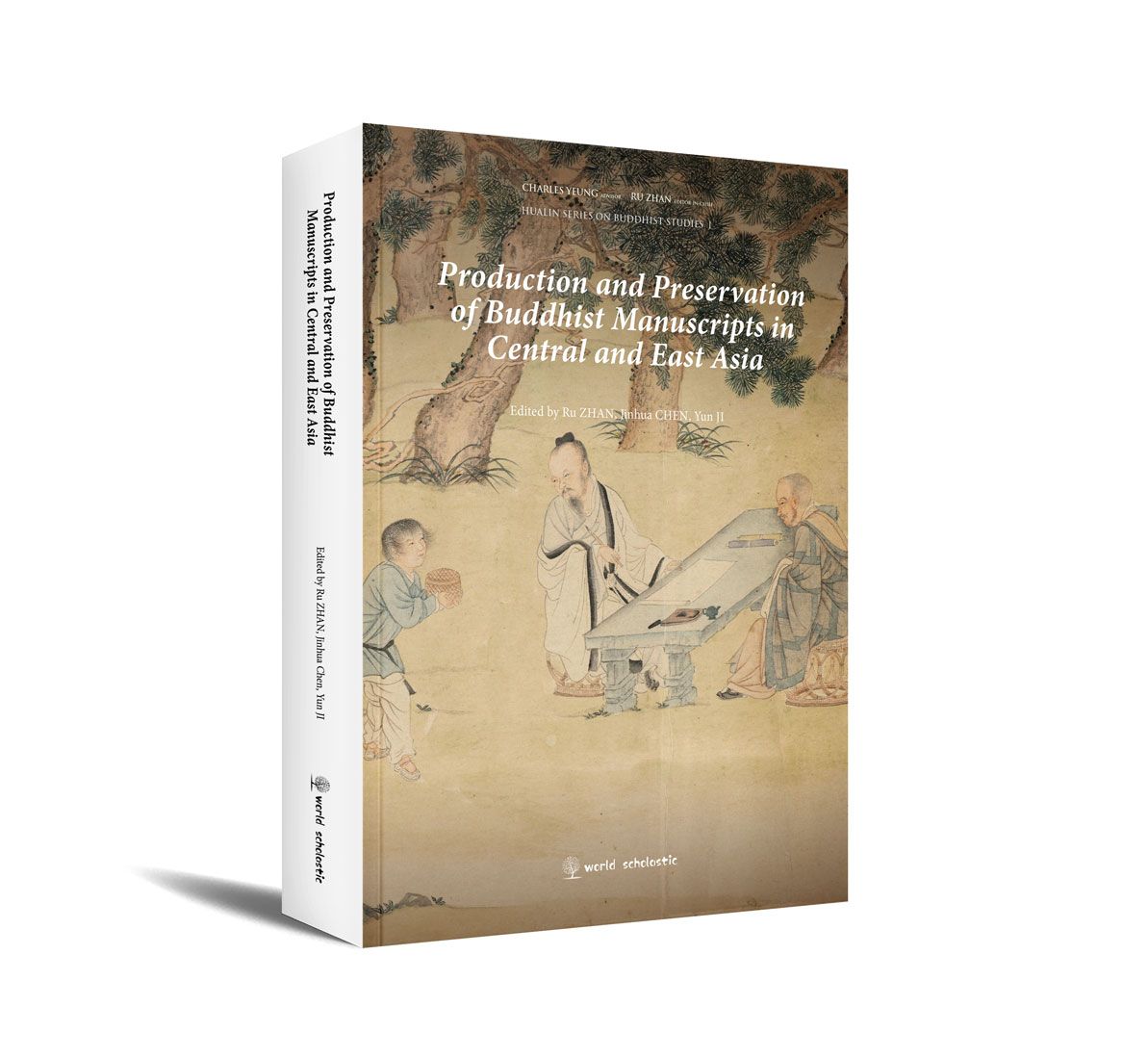Production and Preservation of Buddhist Manuscripts in Central and East Asia

Edited by Ru ZHAN, Jinhua CHEN, Yun JI
Series: Hualin Series on Buddhist Studies I
ISBN: 978-9-81149-575-5
Publishing Date: 2020-12-31
Publisher: World Scholastic Publishers
Pages: 425
Format: Paperback
Open access: Download PDF
The discovery of the cache of manuscripts and other materials in cave seventeen of the Mogao Grottoes, near Dunhuang in western China, early last century has kindled the new field of the study of Central and East Asian Buddhist manuscripts. Discoveries in Japan late last century of twelfth-century copies of much earlier manuscripts, in addition to the treasury of documents preserved in the Shōsōin (Shōgozō), and at sites in Korea, Chinese Central Asia, India, Pakistan, and Afghanistan, compel scholars to reconsider not only how we think about the transmission of Buddhist literature and religious teachings, but also the production and preservation of Buddhist texts and books across a broad geographical and chronological span. All of this once again demonstrates the importance of the study of Buddhist manuscripts.
It is precisely because of the significance of Buddhist manuscripts that an international conference entitled ‘Production and Preservation of Buddhist Manuscripts in Central and East Asia’ was held at the University of Cambridge, UK, from August 29–31, 2018.
The conference brought together experts and scholars from various countries in the fields of Buddhist philology, Buddhist history, art history, and archaeology. During the three days of the conference, scholars discussed in depth the topics of ‘The Integration of the Teachings found in the manuscripts’, ‘The Migration of the manuscripts’, ‘The Materiality of the manuscripts’, and ‘epigraphical materials and manuscripts’. We now compile this collection of eleven papers in English based on the papers presented by scholars in this conference, with slight amendments.
1. Manuscript Network in Central and East Asia
-
- 1.1. Distribution and Preservation of the Shi Moheyan Lun 釋摩訶衍論 Texts in East Asia: Did They Read the Same Text?
Jiyun Kim 金知妍 - 1.2. Glosses in Chinese and Japanese on Manuscript editions of Yijing’s Translation of the Suvarṇabhāsottama-sūtra from Dunhuang and Japan
George A. Keyworth - 1.3. An Investigation of the Relationship between Prince Shōtoku’s Shōmangyō-gisho and Two Dunhuang Buddhist Manuscripts: A Debate over Originality and Canonical Value
Mark Dennis
- 1.1. Distribution and Preservation of the Shi Moheyan Lun 釋摩訶衍論 Texts in East Asia: Did They Read the Same Text?
2. Manuscript as Transmission Media
-
- 2.1. On Kambala’s Navaślokī and Its Chinese Translation
Daisy Sze Yui Cheung 張思睿 - 2.2. On the Transmission of the Verse-text of Sa skya Paṇḍita’s Tshad ma rigs pa’i gter and the Rang ’grel-Auto-commentary
Leonard W.J. van der Kuijp - 2.3. The Manuscript Culture of Confucianism and Buddhism in Medieval China
Tong Ling 童嶺
- 2.1. On Kambala’s Navaślokī and Its Chinese Translation
3. Technical Aspects of Manuscript Culture
-
- 3.1. Colophons by the Tōdaiji Monk Sōshō (1202–1278): The Threshold between Text and Paratext
Asuka Sango - 3.2. The Establishment of Mongolian Buddhist Collections: Highlights of Physical Appearance and Production Processes
Sainbileg Byambadorj
- 3.1. Colophons by the Tōdaiji Monk Sōshō (1202–1278): The Threshold between Text and Paratext
4. Prayers and Rituals
-
- 4.1. Offerings and the Production of Buddhist Scriptures in Dunhuang during the Tenth Century
Henrik H. Sørensen - 4.2. The Discourse Record of Layman Ruru and Its Transformations in Canonical Liturgical Materials
Alan Gerard Wagner - 4.3. Prayers for Mediation: Thirteenth-Century Textual Culture between Kōya and Kamakura
Brian Steininger
- 4.1. Offerings and the Production of Buddhist Scriptures in Dunhuang during the Tenth Century








